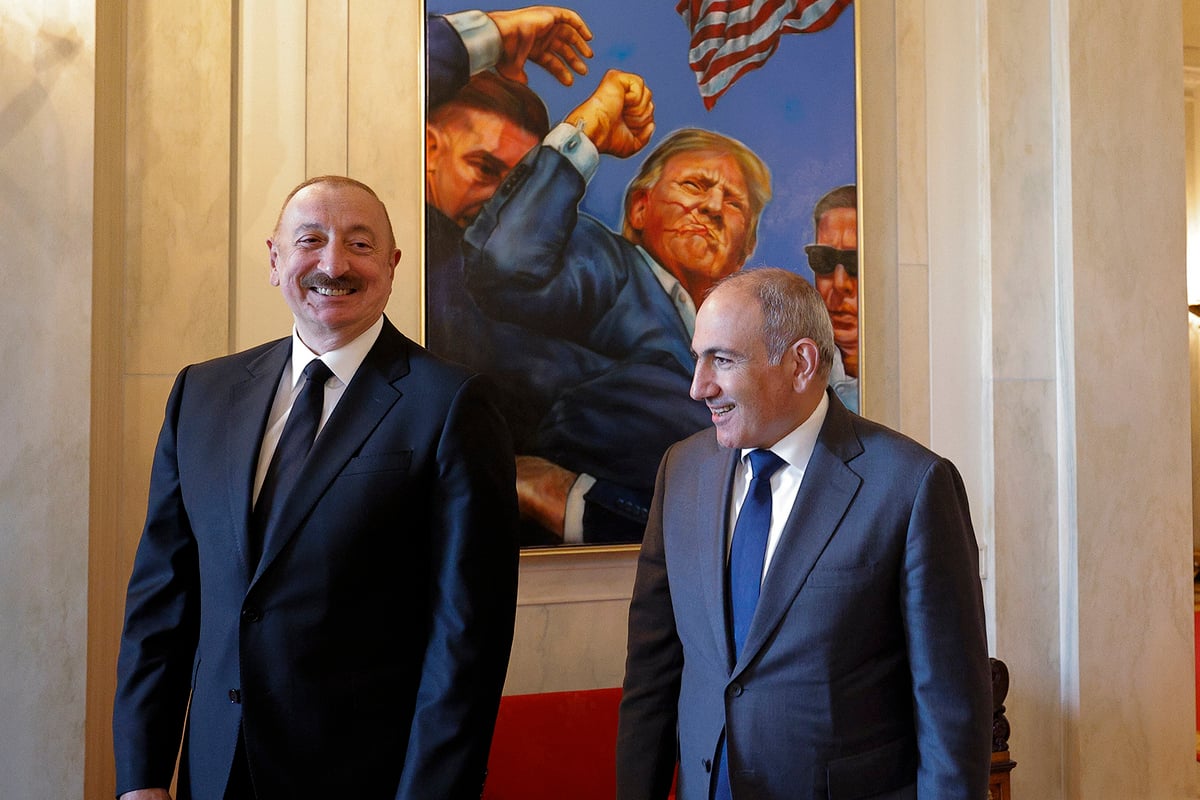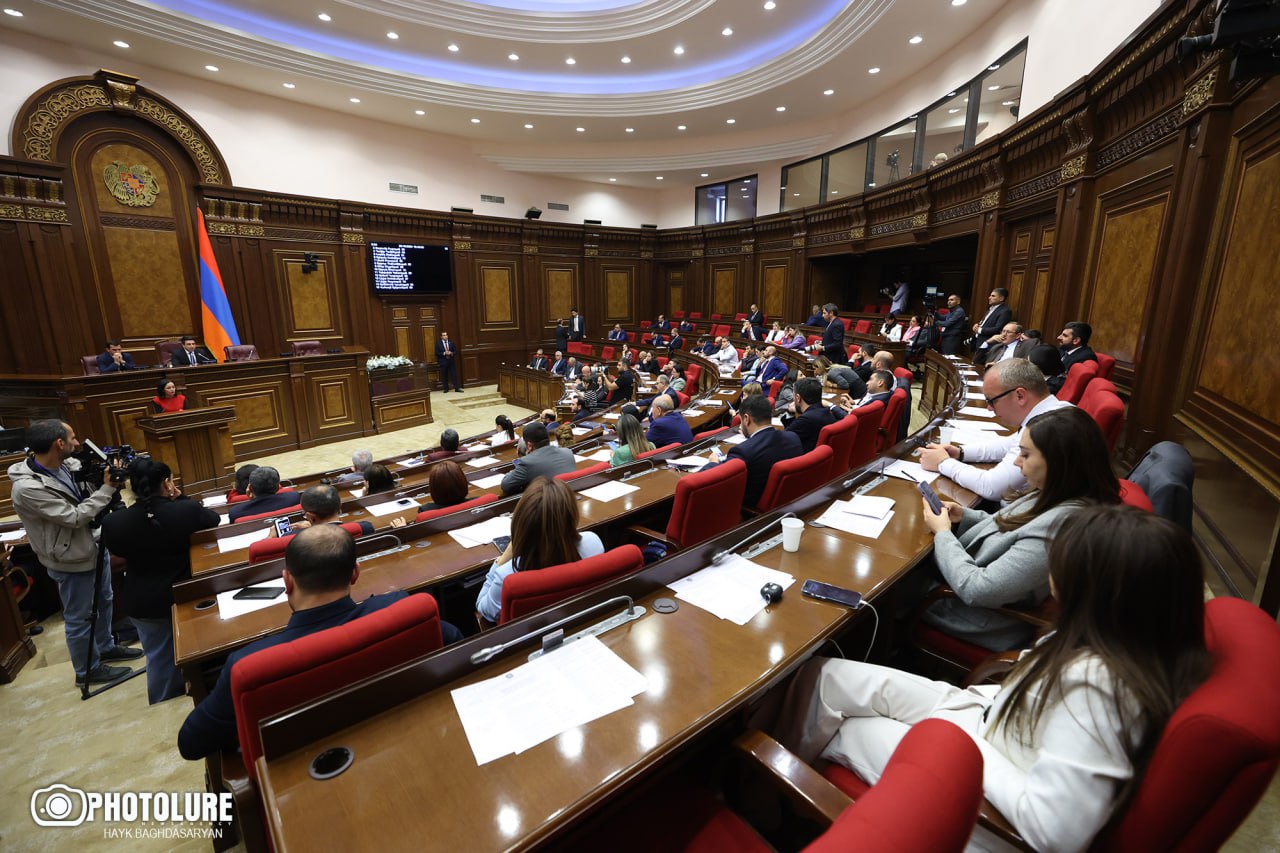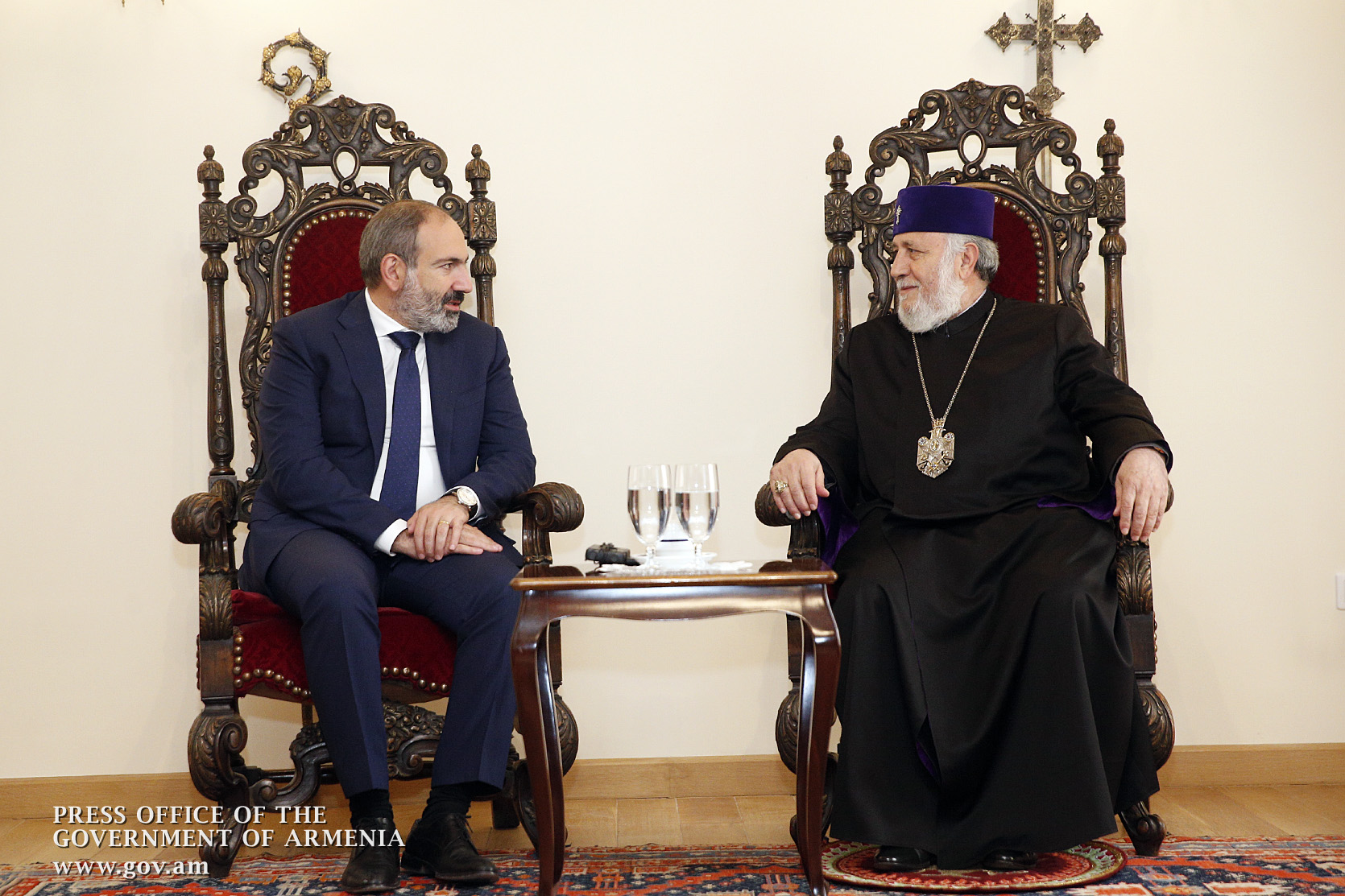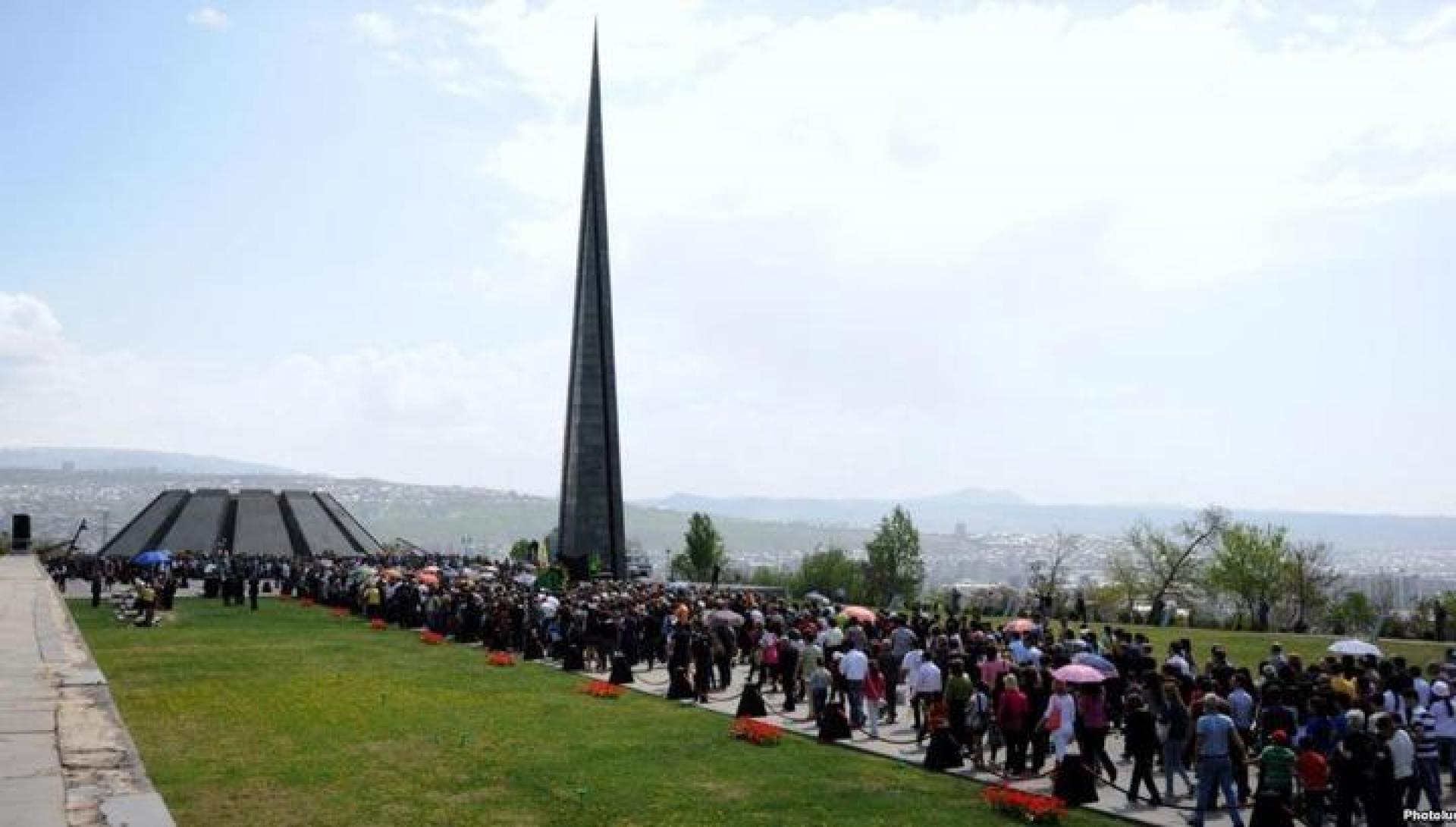“Armenia is now in its least vulnerable position” – key points from Pashinyan’s briefing
Pashinyan’s briefing: key takeaways
Armenian prime minister Nikol Pashinyan has dismissed recent remarks by former US deputy secretary of state James O’Brien, who claimed Armenia was left vulnerable after the Washington meeting between Donald Trump, Pashinyan and Azerbaijan’s president Ilham Aliyev.
Asked by Armenian journalists to comment, Pashinyan said: “If Mr O’Brien speaks about Armenia’s vulnerabilities, I must note that Armenia was at its most vulnerable precisely during his and their [previous administration’s] time in power. I would remind you of the events of 2023, 2022 and 2021. We were never satisfied with the work the US administration at that time carried out to support the peace agenda in our region.”
In his article, published by the European Council on Foreign Relations thinktank, O’Brien argued that Azerbaijan gained significant dividends from the White House meeting: “America gave Baku an advance merely for words about peace, while Armenia was left vulnerable.”
He also wrote that “it was a disgrace” for Armenia, as the border with Turkey remained closed, there were no major new investments for Armenia (aside from those promised by Antony Blinken in April 2024 and the August 8 US-Armenia agreement), and “the only result would be a corridor connecting different parts of Azerbaijan.” He added that unless the planned road link through Armenia to Nakhchivan became part of a global network, it would matter only to Azerbaijan.
At his latest weekly briefing, Pashinyan countered that Armenia is now “in its least vulnerable position in modern history.”
He added that O’Brien’s remarks should not be seen as “too strange,” reminding that when Trump came to power, “he lost his senior post and now faces the task of explaining why the Trump administration managed to do what they could not.” The prime minister suggested that O’Brien should “engage in self-reflection instead of trying to shift the blame for losing his position onto Armenia.”
In his article for the European Council on Foreign Relations, O’Brien assessed what Armenia had gained from the White House meeting. In his view, “it was a disgrace.”
“The border with Turkey remains closed, there will be no new investments for Armenia (apart from those promised by former secretary of state Antony Blinken in April 2024 and the agreement signed between the US and Armenia on 8 August). The only outcome will be a corridor connecting different parts of Azerbaijan,” he wrote.
O’Brien also argued that “unless the corridor [a road through Armenian territory linking Azerbaijan with Nakhchivan] soon becomes part of a global network, it will be of interest only to Azerbaijan.”
Since last week, Pashinyan has introduced a new format of communication with journalists — weekly 60-minute briefings. This week he answered questions on peace with Azerbaijan, relations with Russia, the statements of former Armenian presidents, and even the possible removal of the Catholicos of All Armenians. Below are the key takeaways from his briefing.
- “Trump Route” will create conditions for new investment in Armenia – economist
- Pashinyan believes “Trump Route” will become a new component of Armenia’s security
- ‘Historic summit’: Armenia and Azerbaijan sign documents with Trump’s mediation
- A Tbilisi perspective on the historic Aliyev–Pashinyan meeting
Peace with Azerbaijan is now irreversible
“When we say that peace [with Azerbaijan] has been established, we are not claiming the two sides no longer have any issues with each other. That never happens — even with countries with which we have never had conflict, or with those with whom we enjoy friendly relations. Establishing interstate relations is a dynamic process. Sometimes sides agree, sometimes they do not. But this does not change the bigger picture.
Peace between Armenia and Azerbaijan has been established. What it needs now is institutionalisation. There is no doubt that I, and my government, will move decisively and consistently along the path of institutionalising peace. We have already steered our ship into a safe harbour. Now the task is to make the piers stronger, more stable, and, ultimately, properly built. Peace is already irreversible. And I see this as the mission of our government — and my personal mission.”
The issue of enclaves remains on the agenda
“No Armenian government, no matter how much it might want to, can abandon the issue of enclaves and exclaves — because Armenia itself has Artsvashen. We cannot renounce Artsvashen as part of Armenia’s sovereign territory.
As for the emphasis that the 200 sq km [occupied by Azerbaijan] are sovereign Armenian territory — all our lands have the same status [including the enclaves]. The Almaty Declaration of 1991 established that Soviet Armenia, with all its administrative territory and borders, became independent Armenia, while Soviet Azerbaijan became independent Azerbaijan. The agreement first reached on 6 October 2022 in Prague [when Armenia and Azerbaijan recognised each other’s territorial integrity] reflects exactly this. We are moving along the path of institutionalising that agreement. And we will continue on this path.”
No return to the 9 November trilateral statement
“Going back to the trilateral agreement of 9 November 2020 makes no sense, as that document belongs to the past.”
On 9 November 2020, Armenia and Azerbaijan, with Russia’s mediation, signed a statement ending the fighting in Karabakh. Armenian analysts point out that most of its provisions have since been violated by Azerbaijan and Russia. Some argue that the Armenian authorities should take steps to formally annul the agreement.
Upcoming visit to Russia
“I am glad that I am expected in Russia. I know I am expected there, and I always look forward to another opportunity to visit. As you can see, there is an active practice of mutual visits.
Yes, such a visit is planned soon, at the end of September. But before that, I will have an opportunity to meet the Russian president in Beijing. This month, too, we spoke on the phone.”
The Armenian delegation has been invited to China for celebrations marking the 80th anniversary of victory over Japan and the end of the second world war, to be held in Beijing on 3 September.
Leaving the Eurasian Economic Union is possible
“This is not a new topic. The debate started after Armenia’s parliament adopted a bill to start the process of joining the EU. We understand that simultaneous membership in the European Union and the [Russia-led] Eurasian Economic Union is impossible. When the moment comes and a choice becomes unavoidable, we will take the necessary decision.
If we say this at the official level, it means leaving [the EAEU] is possible. Any scenario is possible.
This depends, among other things, on the will of our people, on current circumstances and negotiations, on an analysis of conditions, opportunities and alternatives, and on our results and prospects.”
On calls to remove the Catholicos
“My position on the Armenian Apostolic Church has not changed, and it cannot change under any circumstances. Ktrich Nersisyan [the secular name of the Catholicos] must leave the Holy See. Yes, the Holy See must be freed from Ktrich Nersisyan — and it must happen through the efforts of the followers of the Church, of which I am one. I have said that I will lead this process. And I believe you will soon see signs of it [Pashinyan had earlier announced plans to hold a rally in Etchmiadzin].
But it would be better if Ktrich Nersisyan, without delay, made the decision that he must make — the decision he cannot avoid.
There are rumours that violence is being prepared, that force will be used. But we did not use violence even in political processes [referring to the “velvet revolution” that brought a change of power in Armenia]. And we will certainly not resort to violence in matters concerning the Armenian Apostolic Church.”
For some time, Pashinyan has argued that the country needs a new spiritual leader. He has claimed that Catholicos Garegin II broke his vow of celibacy and has a child. At the same time, the prime minister insists he is not acting against the church, but that his actions are driven by the need for “renewal of the church, the state and society.”
On remarks by former presidents
“Our people have already shown Serzh Sargsyan his place, as well as Robert Kocharyan and Levon Ter-Petrosyan. Note that all of them, except Ter-Petrosyan, are figures who have never won any legitimate election in Armenia. Do you understand? Serzh Sargsyan, Robert Kocharyan, Levon Ter-Petrosyan (apart from the 1991 election) — none of them ever won in free, democratic elections.
When I travel through the regions and talk to people, the main criticism I hear is that these figures still exist in Armenia’s political life. I have to answer to the people for the fact that Robert Kocharyan and Serzh Sargsyan still dare to say anything in Armenia.
I believe that in the upcoming elections [in 2026], the people will have the chance to finally cut out and silence the political voices of Serzh Sargsyan and Robert Kocharyan. And this must happen in a political, civilised way.”
On recognition of the Armenian genocide and Netanyahu’s statement
“We must decide whether we want recognition or non-recognition of the Armenian genocide to be used as a geopolitical bargaining chip in someone else’s hands, with no relation to the interests of our state and people. Do we want recognition of the Armenian genocide to come about by accident, or as something said by mistake in an interview?
I do not want us to place our martyrs in such a position. We must focus on the interests of our state. So many countries have already recognised the Armenian genocide. Now let’s take stock: what has Armenia gained from this? What has it brought to Armenia?”
During an interview, US podcaster of Armenian-Assyrian descent Patrick Bet-David asked Israel’s prime minister why his country does not recognise the genocide of Armenians, Assyrians and Greeks. In response, Benjamin Netanyahu said that, if he was not mistaken, the Knesset had adopted such a resolution. Bet-David replied that he expected to hear it from Netanyahu himself. “I just said it,” Netanyahu answered. Ankara has already criticised the Israeli prime minister’s statement.
Pashinyan’s briefing: key takeaways

























